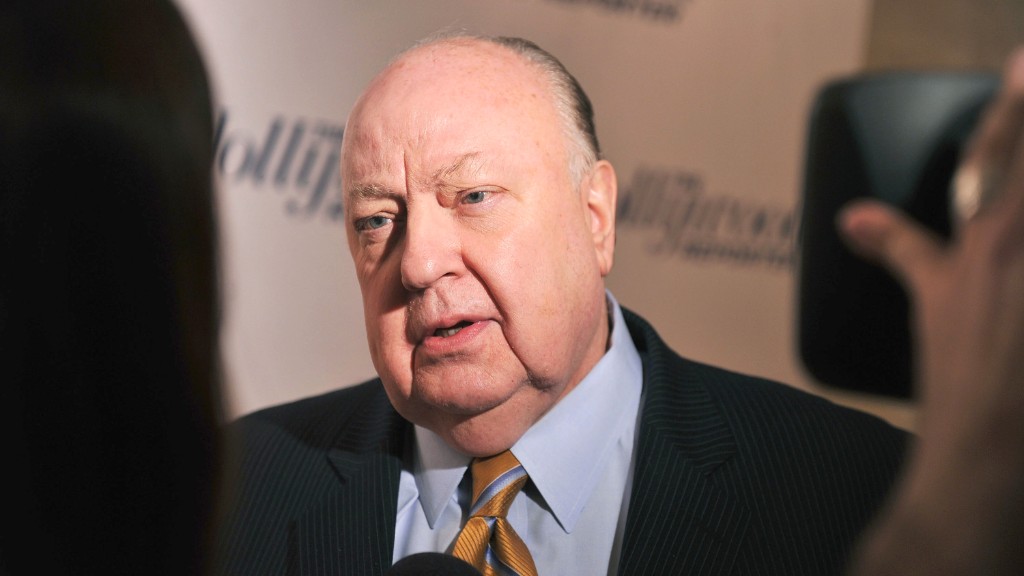
There was something poetic about the news of Roger Ailes's departure from Fox News breaking hours before Donald Trump accepted the Republican presidential nomination on Thursday. No presidential candidate has demonstrated the power of television and celebrity more than Trump. And no one did more to fuse GOP politics with the bright lights of TV and show business than Ailes.
Before he launched Fox News 20 years ago, and made the channel into a $2.3 billion juggernaut that dominates cable news, Ailes was a Republican operative who saw what television could do for the party well before most.
Ailes's understanding of the medium -- and how it could be manipulated for ideological ends -- was clear in a 318-page cache he helped prepare while serving as an aide to Richard Nixon.
The memo, created in 1970, was titled "A Plan for Putting the GOP on TV News."
"Today television news is watched more often than people read newspapers, than people listen to the radio, than people read or gather any other form of communication," the memo read. "The reason: People are lazy. With television you just sit—watch—listen. The thinking is done for you."
Just three years before, in 1967, Ailes had confronted Nixon -- who was apparently still skeptical of television's power even after his 1960 televised debate against John F. Kennedy -- on the topic.
Prior to making a cameo on "The Mike Douglas Show," Nixon bemoaned that he had to "use gimmicks like television to get elected."
The legend of their encounter says that Ailes, a producer on the show, didn't hold back.
"Television is not a gimmick," he's said to have told Nixon. "And if you think it is, you'll lose again."
A few weeks later, the story goes, Nixon hired Ailes as a media adviser for his 1968 presidential campaign.
By the 1980s, Ailes was, as former Ronald Reagan campaign manager Ed Rollins put it, "the premier guy in the business."
"He was our Michelangelo," Rollins told Rolling Stone in 2011.
Ailes lent his support to Reagan's 1984 campaign, providing the president with a one-liner to rebut any questions about his mental stamina or advancing age. The result -- "I will not make age an issue of this campaign; I am not going to exploit, for political purposes, my opponent's youth and inexperience" -- was one of the most memorable lines at any presidential debate.
Ailes left an indelible imprint on the next presidential campaign, too, as he worked on behalf of George H.W. Bush.
When Bush sat down for an interview with Dan Rather in 1988, it was Ailes who pushed the then-vice president to attack the CBS News anchor over questions regarding the Iran-Contra affair.
In the event that Rather asked about Iran, Ailes advised, Bush should bring up the anchor's decision to walk off a CBS News set. Bush listened, and the interview devolved into a shouting match.
Ailes brought that background to Fox News in 1996, when he joined the fledgling cable outfit after serving as president of CNBC for more than two years.
At Fox's inception, Ailes and Rupert Murdoch, then the chief of News Corporation, made it clear that the network would represent an alternative to a mainstream media they both found too liberal.
''I've told my staff, 'I don't expect you not to be biased in your lives; you'll be too damn boring at the dinner table if you don't have opinions,' '' Ailes told the New York Times shortly before Fox's launch. ''But when you walk into this newsroom, recognize your position or your bias and be fair to people who don't share that position.''
Although Ailes has said he "quit politics because I hated it," the politicking never really stopped, even as he oversaw a newsroom. Fox became his biggest megaphone yet, as he used the network to promote his preferred Republicans and relentlessly attack the liberals in politics, entertainment and media he deemed an enemy. The network was often awash in red, white and blue, with hosts espousing an ultra-patriotic posture.
In the spring of 2012, Fox ran what was essentially a four-minute attack ad aimed at President Obama that aired on the network's highly rated morning show, "Fox & Friends."
And Ailes never really stopped influencing the GOP. That same year, according to Sherman, Ailes advised Rep. Paul Ryan, Mitt Romney's running mate, "that his television skills needed work." Ailes even recommended a speech coach to Ryan, now the House Speaker.
"You can't run for the Republican nomination without talking to Roger," one anonymous GOPer told Sherman in 2011.
Ailes lined Fox News' roster of contributors with a number of prominent Republicans after they left office, from Sarah Palin to Rick Santorum. Former Arkansas Gov. Mike Huckabee, a two-time GOP presidential candidate, was given his own weekly show on the network.
For certain Republicans still seeking public office, Ailes frequently used Fox to advance their ambitions.
Rudy Giuliani, for whom Ailes worked as a media consultant in the 1989 New York City mayoral race, was hyped relentlessly by Fox during his ill-fated 2008 presidential bid. The two men are close friends, and Ailes is said to have drawn advice from Giuliani while the sexual harassment scandal played out.
Ailes received counsel from another prominent Republican during the controversy: Donald Trump.


